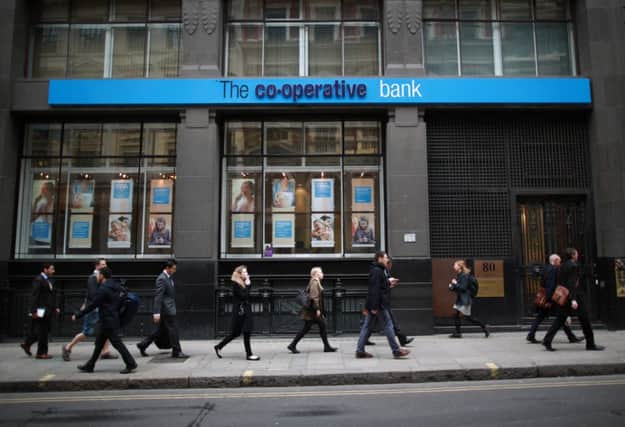Myners to call for overhaul of board at Co-op


The former City minister’s long-awaited proposals will come a week after the running of the troubled mutual was criticised in a review by Sir Christopher Kelly into the near-collapse of its banking arm.
Kelly’s damning conclusions appeared to strengthen the hand of those who want to shake up the group’s democratic structure – but have faced bitter resistance which saw the departure of chief executive Euan Sutherland earlier this year.
Advertisement
Hide AdAdvertisement
Hide AdIt is thought that Myners will call for the abolition of the Co-op’s existing 21-member board – replacing it with a “plc-style” body to take commercial decisions. He has rejected the description, claiming his proposed board would be far more accountable than that of any listed company, while other reforms would place increased power in the hands of its employees and eight million members.
The peer has pinned the blame for the disastrous losses at the group on former managers “who were allowed to run amok like kids in a sweet shop”.
He said recently: “They bought up businesses willy-nilly – from Britannia Building Society to Somerfield supermarkets – and made catastrophically inept decisions over and over again. In the process they crippled the group with huge debt.”
Regional membership boards and independent societies that currently hold sway in the group, whose interests span food retailing, travel and funeral provision, are reported to be unhappy about the Myners proposals.
But in an interim review published in March, he insisted the mutual had to take urgent steps to reform a “massive failure” of governance or it would go bust. The Co-op has already set out details of a resolution based on measures drawn up by Myners that is due to be put to its annual general meeting on 17 May.
Further backing for reform came as interim chief executive Richard Pennycook published annual results last month, the worst in the group’s 150-year history. He painted a picture of staggering mismanagement and chaotic governance at the group, which meant even its own board was unaware of its £1 billion-plus debt.
The group’s massive losses for 2013 were mainly caused by the debacle at its banking arm which was picked apart in Kelly’s report last week. The bank had faced near-collapse last year after the discovery of a £1.5bn hole in its balance sheet, and had to be rescued by bondholders in a move that saw the group’s stake reduced to 30 per cent.
There is speculation that the cash-strapped group will see its holding in the banking business fall still further when details of a life-line £400 million rights issue are announced within the next seven to ten days. It has admitted it will have to go to its lenders if it wants to put in a further £120m that will be needed to preserve the size of the stake.
Advertisement
Hide AdAdvertisement
Hide AdAccording to a Sunday press report, the Co-op will give up most of its rights to the fund-raising but do enough to retain a holding of more than 20 per cent in the bank – and avoid the possibility of losing any effective control over it.
If the stake in the bank falls below 20 per cent, a guarantee that it must uphold its ethical co-operative values will no longer stand, although the business can choose to keep it.